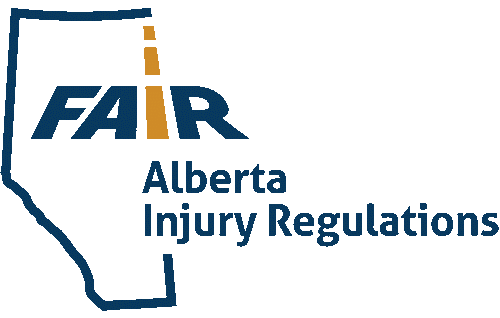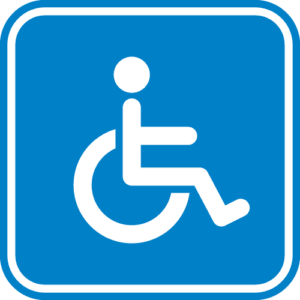Understanding the role of an insurance adjuster is vital to receiving the compensation you deserve for your claim. If you have a claim for an injury from a motor vehicle accident, your first point of contact is generally an insurance adjuster. The adjuster’s job is to collect details from you, the claimant or insured party, in order to decide how much compensation the insurance company should provide.
In an ideal world, the insurance adjuster tries to reach a settlement that is satisfactory to both the insured party and the insurance company.
In the real world, the insurance adjuster, whether an independent adjuster or an insurance company employee, works for the insurance company. The insurance adjustor does not work for you. The insurance adjuster may seem friendly and personable. The adjuster’s job, however, is to settle your case on the best available terms for the insurance company.

What Does an Insurance Adjuster Do?
The insurance company will assign an insurance adjuster to your case. The adjuster will then ask you to complete and submit forms detailing your injuries or damages. In the case of physical injuries, you must provide details of any injuries and treatment plans from your healthcare provider. What happens next?
The insurance adjuster
- will examine the information about your injuries and the proposed treatment
- may consult with medical professionals hired by the insurance company
will submit a report to the insurance company recommending a settlement amount, and - will then negotiate with you to either arrive at a settlement or deny your claim altogether.
The Negotiation Phase
Unless your injury claim is rejected, you will receive a settlement offer. Do not accept the first settlement offer from the insurance adjuster. Why?
- The money may look nice, but the insurance company’s first offer is generally just an opening step in negotiations.
- The compensation offered may be significantly less than the full value of your claim.
- The extent of your personal injuries may not be fully apparent until months after the accident. Agreeing to a settlement too soon, before your injuries are fully known, may leave you undercompensated. You will then have little recourse if your injuries turn out to be more serious than expected.
Beware of insurance adjuster tactics. Before accepting the insurance company’s settlement offer for your injury claim, always consult with a personal injury lawyer. Ask for a free consultation to discuss your claim.
If you live in central or northern Alberta, you can call (780) 760-4878 (HURT) or contact me, Joseph A. Nagy, to book your free consultation and injury claim evaluation. I will recommend steps you should take to be certain the insurance company treats you fairly. You will have no obligation to hire me as your injury lawyer.
Insurance Adjuster Tactics and Case Law
Courts have sometimes been asked to rule on whether the conduct of insurance adjusters led to unfair or unconscionable outcomes for the injured person. Continue reading to learn about the key findings in these five cases:
- Nery v Nery
- Woods v Hubley
- Jones v Jenkins
- Vaidyanathan v. Kay
- Hanna v. Polanski
Nery v Nery
In Nery v Nery, 2012 ABQB 484, the Plaintiff accepted a settlement presented to her by the insurance adjuster about six months after her accident. At that time, medical assessments of the Plaintiff’s condition indicated that her injuries had not yet stabilized. She had just returned to work, but a few months later had to stop working again as her condition had worsened. The court found that the adjuster
- was aware of the uncertainty of the Plaintiff’s prognosis, and
- was also aware that the amount of compensation offered was significantly less than her real entitlement.
Ms. Nery’s evidence was that the insurance adjuster told her there was a “government law” that she could not recover more than $4000 for her injuries.
The law was Alberta’s Minor Injury Regulation. The judge found that Mrs. Nery did not have independent legal advice. Moreover, the judge found that there was an imbalance of bargaining power between her and the insurance adjuster, which led to an overwhelming misunderstanding that the adjuster was acting in her best interests. The judge concluded that the insurance adjuster knowingly took advantage of Mrs. Nery’s vulnerability, noting:
“… a settlement which under-compensates calculable loss of earnings by half, ignores the medically recognized possibility of a very serious injury not affected by the Minor Injury Regulation, is finalized despite significant uncertainty as to whether the injured party’s condition has stabilized and as to whether there has been a loss of future earning capacity, is grossly unfair and improvident.”
Woods v Hubley
In Woods v Hubley, 1995 NSCA 173[1], the Plaintiff was induced to sign a grossly improvident settlement just before undergoing surgery related to her injuries. She had telephoned the adjuster and informed him that she required the surgery. She wanted to know what the situation would be if the outcome of her surgery was not satisfactory.
The adjuster had advised her that he would pay no more than $3,500. She could take it or leave it. She would get no more even if she got a lawyer.
The Plaintiff had no prior experience in settling legal claims and knew nothing about the legal system. She had asked for $15,000. When the adjuster told her the offer was $3,500, she believed that that was all she could get.
The trial judge found that “the adjuster deceived and misled the respondent and prevented her from having a fair opportunity to consult a lawyer … thereby taking advantage of her ignorance and her need.” The amounts offered were not based on the medical reports or other facts and “therefore were shams”. Further, “there was no indication that the adjuster had any knowledge of or cared what amount was appropriate compensation for her injuries.”
Jones v Jenkins
In Jones v Jenkins, 2011 ONSC 1426, the court found that there was an inequality of bargaining power between the experienced insurance adjuster and the Plaintiff. The adjuster used his position of power to achieve an agreement that was “sufficiently divergent from community standards of commercial morality to be unconscionable.”
- The adjuster had information about the extent of the Plaintiff’s injuries that was important to the damage assessment but withheld that information from the Plaintiff.
- When the insurance adjuster presented the settlement offer, he indicated a $30,000 deductible. He did not inform the Plaintiff that the deductible was not applicable to general damages in excess of $100,000.
- The adjuster also reduced the general damages and the future economic loss claim by 75%. The adjuster based the reduction on the Plaintiff being 75% responsible for the accident. However, there was no evidence that that was the case.
The court found “it was clear that the Plaintiff had the impression that the adjuster would be fair and would look out for his interests as well as the interests of the insurance company.”
…
In the above cases, the courts found that the settlements entered into by the plaintiffs were unconscionable and improvident. The findings allowed the plaintiffs to pursue claims more properly reflecting their actual losses. However, proving unconscionability can be difficult. Generally, the courts uphold such settlements.
Vaidyanathan v. Kay
For example, in Vaidyanathan v. Kaye, 2021 BCCRT 882, the Plaintiff accepted a settlement from the Insurance Corporation of British Columbia (ICBC) for $5,500. The Plaintiff later argued that his injuries were still significantly impacting his life and the settlement was unfair. The court held that the ICBC adjuster did not take advantage of an inequality in bargaining power to induce settlement. The Plaintiff had time to consider the offer and seek legal advice but chose not to. Even if his injuries ended up being worse than expected, he was bound by the settlement agreement.
Hanna v. Polanski
Similarly, in Hanna v. Polanski, 2012 ONSC 3229, the court concluded that the Plaintiff was bound by the $5,000 settlement negotiated with the insurance adjuster, even though he later suffered from long-term injuries. The judge stated that settlement negotiations between a self-represented claimant and an insurance adjuster are not necessarily evidence of an overwhelming power imbalance. The Plaintiff was told by a lawyer that it was too early to assess the suitability of the offer, but he disregarded that advice and negotiated a settlement without the lawyer’s help. In the result, he was precluded from obtaining further compensation.








